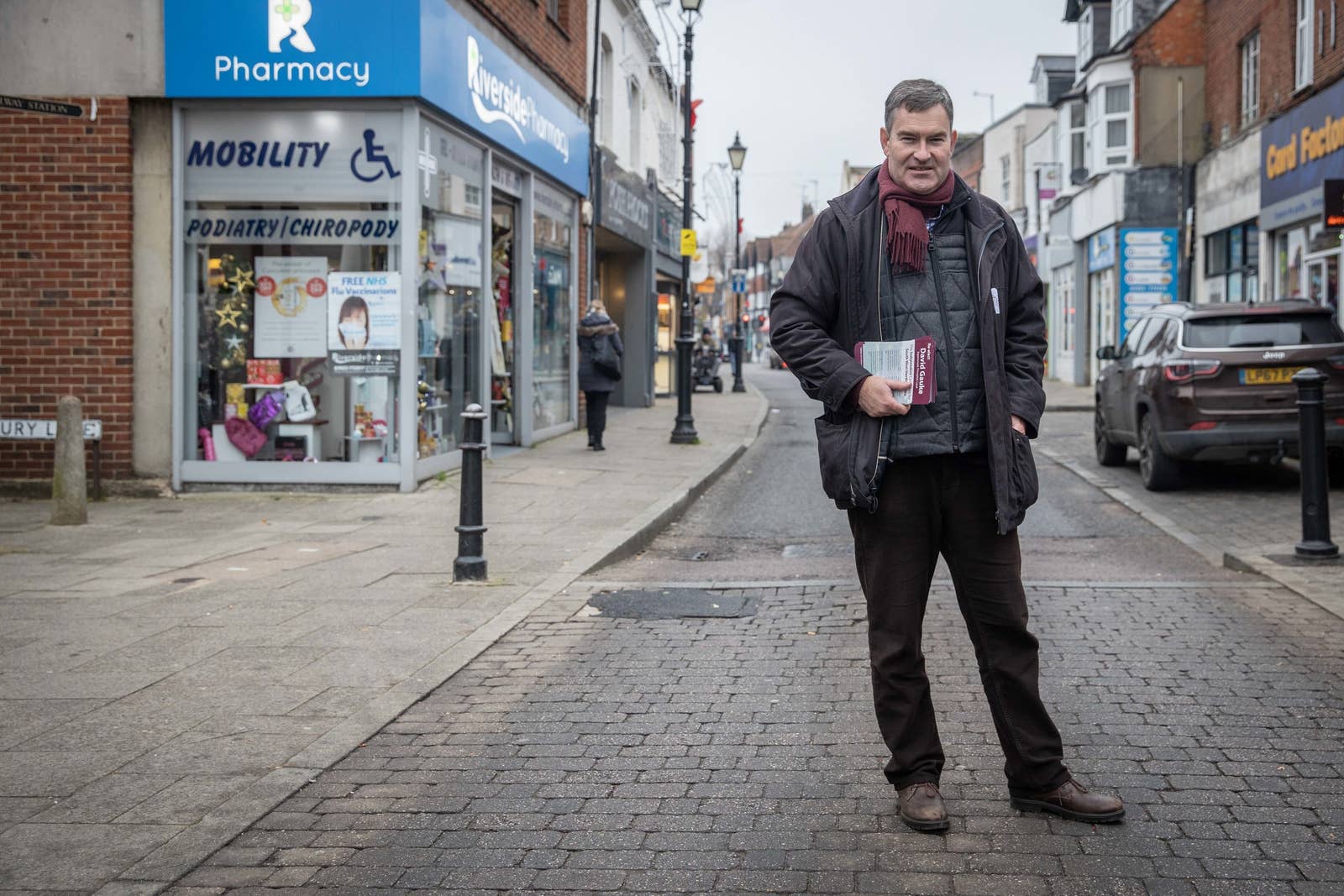
It’s a cold, gloomy morning on the campaign trail in Hertfordshire, but David Gauke is fighting for his political career, so he strides eagerly toward the next high street, clutching a stack of election leaflets.
The 48-year-old former Conservative justice secretary has been canvassing today in the South West Hertfordshire constituency, in the commuter belt northwest of London, since 7am, trying to convince the voters who have sent him to Westminster four times to elect him again on December 12.
Gauke was the Tory MP here for 14 years until September, when he voted to obstruct Boris Johnson’s hard Brexit plans and was kicked out of the party. Now he’s running as an independent, trying to stop his former colleagues retaining a seat he won with a majority of 19,950 two years ago.
In Rickmansworth, a small town in the south of the constituency, Gauke stands outside a coffee shop handing out leaflets and explaining his centrist, anti-Brexit positions to anyone who will listen. He wears a black coat over a padded vest, a burgundy scarf, and a small “I’m voting David Gauke” sticker where he once would’ve worn a blue Conservative rosette. People seem keen to engage.
“Thank you for being so sensible and honourable,” one woman says, shaking Gauke’s hand.
“We respect what you’re doing,” says another. “We’re really fed up with Boris.”
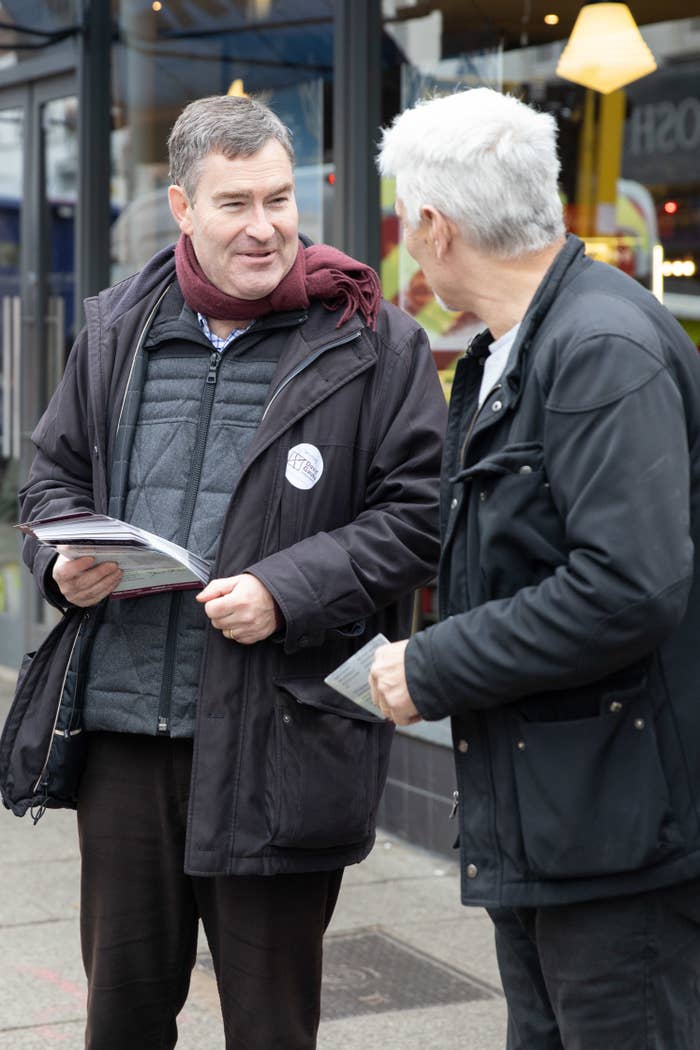
Gauke’s challenge is a long shot — independents almost never win elections in Britain — but he insists it’s more than just a quixotic last stand before he disappears into the lucrative political afterlife of advisory boards and speaking engagements. He is casting himself as a flag-bearer for a brand of “reasonable, moderate, centre ground” politics that has come to seem almost quaint in this era of rancour and division.
In Gauke’s view, he’s making a stand not just against Brexit but a rising tide of nationalistic populism that he says has totally changed the character of his former party and threatens to plunge the country into years of turmoil and economic disruption.
A generation of moderate Tories were scattered to the political winds in recent months as Johnson ascended to the top of the party and it took on a far more dogmatic, bombastic style to appeal to a new base of hardline Leavers. Suddenly politically homeless, a flock of centrist stalwarts instead joined the Liberal Democrats (Sam Gyimah); found new outlets for their political ambitions (Rory Stewart is running for London mayor as an independent); or quit frontline politics (Ken Clarke, Justine Greening, Amber Rudd).
Gauke and two others — the former attorney general Dominic Grieve and the former education minister Ann Milton — chose to contest their seats again as independents. In Gauke’s case, he says he wanted to “fly the flag” for the kind of inclusive “One Nation” Toryism that underpinned David Cameron’s modernisation project and delivered a majority in 2015, before the party was captured by Brexiteers. He says he's convinced that the Tories have made a bad mistake by pivoting away from the centre ground — that there’s still a centre to be won in these turbulent, polarised times.
“People don’t like what’s happened to the big parties,” Gauke says. “They think they’ve been dragged off to the extremes. They think the quality of leadership is below what a country like the United Kingdom ought to have available. And they want something different.”
Millions of liberal metropolitan and suburban voters have been left adrift by the crack-up of the main parties, he says, and they’re yearning for a “more civilised form of politics”. Two weeks on the campaign trail in this election, speaking to voters across South West Hertfordshire, has only strengthened his belief that the British public don’t want politicians fighting cultural wars, he says — and it’s made him surprisingly optimistic about his chances of retaining South West Hertfordshire.
“This is a marginal seat now,” Gauke says.
He is an unlikely insurgent. An Oxford-educated lawyer, Gauke spent nine years as a minister under David Cameron and Theresa May, earning a reputation as competent, diligent and dependable — a team player. “Uncork the Gauke!” was the joke in Westminster whenever the government needed a calm head to douse a political flare-up. Cameron planned to make him Chancellor; May promoted him to challenging cabinet roles. But as the Tories’ divisions over Europe became ever more belligerent, he grew increasingly uneasy about his place in the party. “We need to cool the temperature of the debate,” he urged his colleagues in a speech at a think tank in May, when he was still justice minister, but privately he had been telling friends for months that he’d probably fought his last election as a Conservative.
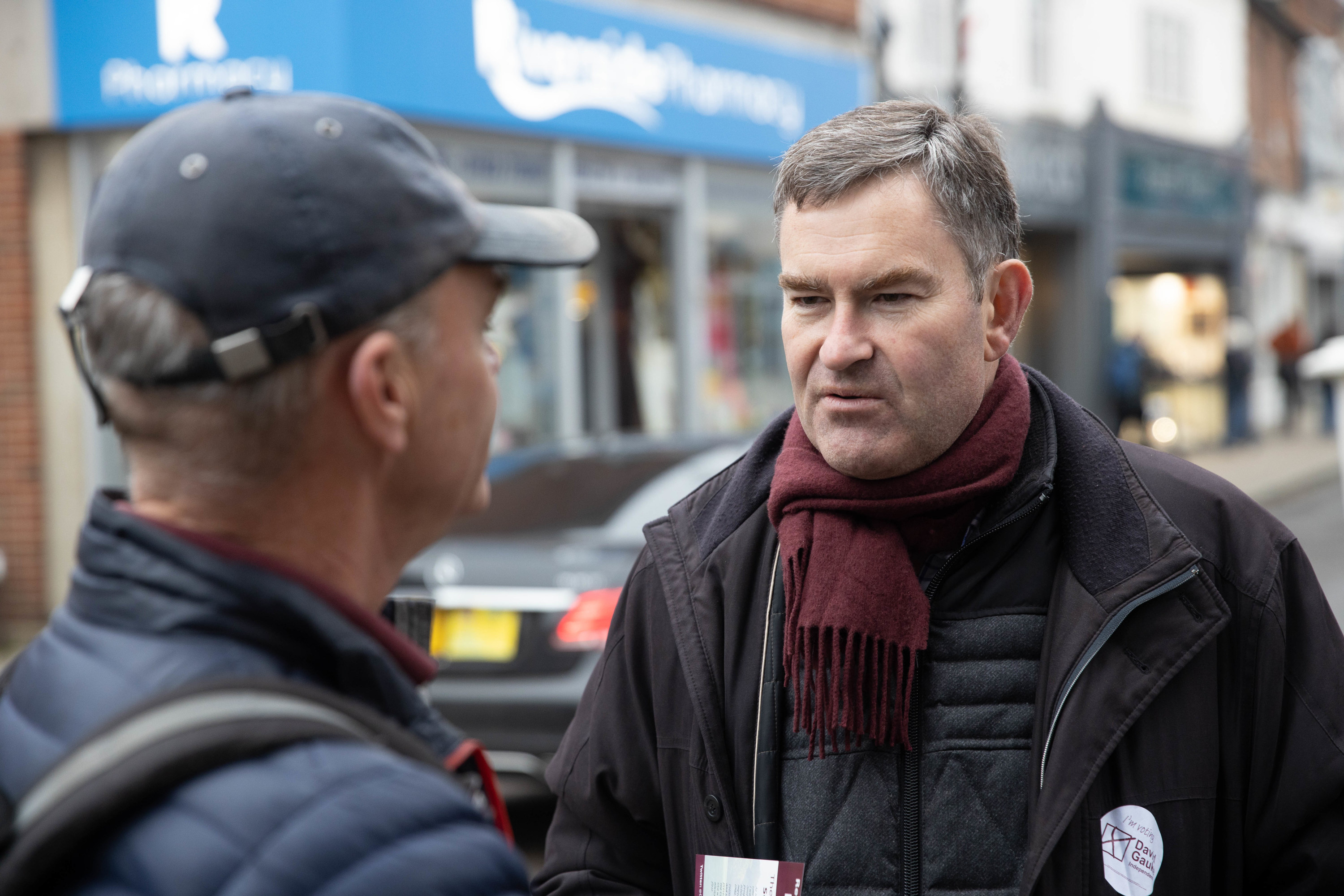
When Johnson was elected Tory leader in the summer, Gauke quit the cabinet. In September, he defied the new leadership by voting for legislation that compelled the government to seek an extension rather than pursuing a no-deal Brexit — the law Johnson derided as the “surrender bill”. Gauke and 20 other Tories had the party whip removed, ending his career as a Tory MP.
He says he doesn’t regret it: “The failure to stand would, to my mind, have meant that I allowed something that I believe to be very, very bad to happen... If the price of continuing my political career is to be complicit in a really bad thing then that’s not a price I’m prepared to pay.” But it put his chances of continuing in Parliament in serious doubt.
When the election was announced, Gauke weighed his options. He considered following colleagues who’d joined the Lib Dems, like Gyimah and Phillip Lee. He had several conversations with Lib Dem officials, he says, but joining them felt uncomfortable and opportunistic. “Having left one tribe I didn’t feel the desire to join another.” Moreover, when he crunched the numbers, he concluded that he’d attract more disgruntled Tories under his own steam than he would as a Lib Dem.
There are long odds on him retaining South West Hertfordshire as an independent. Most people make voting decisions based on parties, not on the individuals standing in their constituencies. Because the vast majority of voters pay only glancing attention to politics, even a candidate like Gauke with a long record locally and a national profile will struggle to get traction without one of the main parties behind them.
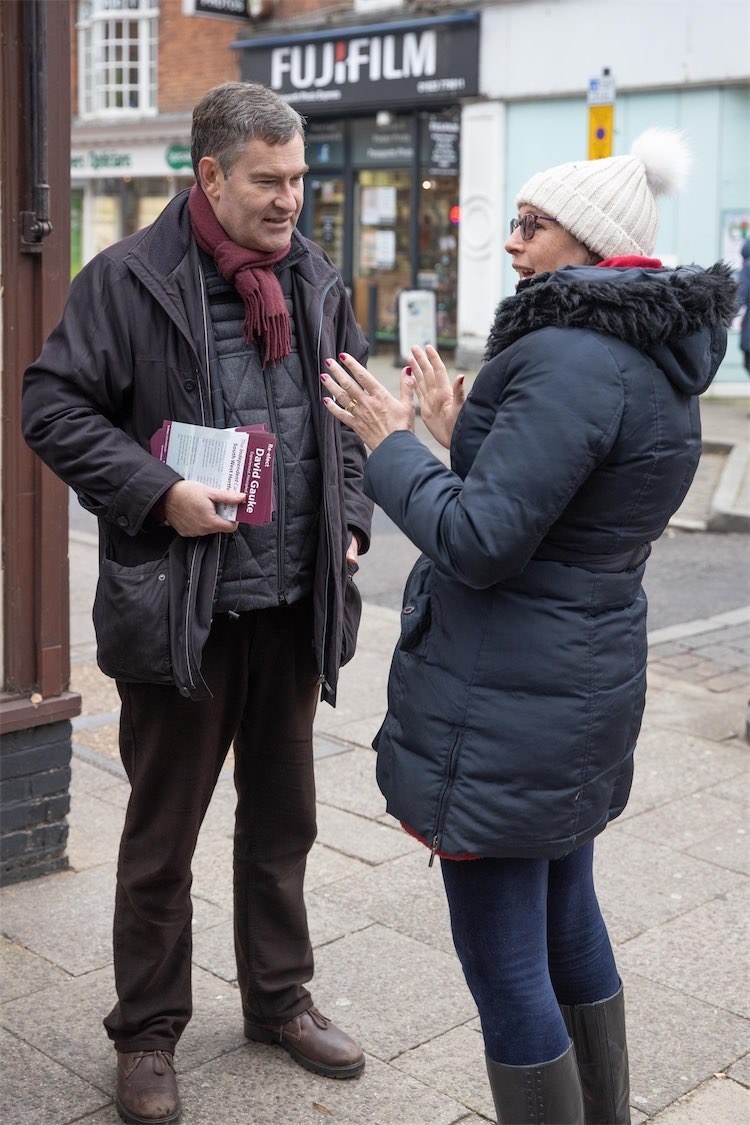
“There are maybe 10 MPs in the country who have a personal vote,” as one Tory strategist who is sympathetic to Gauke puts it. “And Gauke isn’t one of them.”
The local Tory party machine is now geared to electing Gauke’s replacement, an Essex county councillor named Gagan Mohindra. That means Gauke can’t draw on the activist networks, professional campaign strategists and troves of voter data that helped him win in the past. And because spending by individual candidates is tightly capped, his ability to build his own infrastructure is constrained.
In Gauke’s constituency, it amounts to about £15,000, which he says is just enough to print a couple of leaflets and run some targeted Facebook advertisements. Everything else — premises, staff, polling — has to be improvised, donated or omitted.
However, in just over a week, Gauke pulled together a bare-bones field operation from his political contacts, family, and locals who responded to his appeals on Twitter and Facebook. He now has four people working full-time on the campaign, including one of Gauke’s former special advisers in government. They work out of their cars (Gauke drives a Ford Galaxy people-carrier, its door pockets stuffed with compilation CDs like Soul Man and The Very Best of Neil Diamond and the back seat loaded with campaign materials) and at his house in Chorleywood, a village about 20 miles northwest of London.
On this day, Gauke’s dining room has been transformed into a makeshift war room: An enlarged map of the constituency is spread out on the table. Boxes of leaflets, posters, and stickers are stacked against the walls. A couple of young volunteers work on MacBook laptops.
Gauke says he’s been hugely encouraged by the support he’s had so far.
On the first weekend of the campaign, he had 25 people delivering leaflets for him, he says — more than he ever had as a Tory candidate. Amber Rudd, his former cabinet colleague, spent a day canvassing with him. Several other prominent liberal former Tories have also publicly endorsed Gauke: Ken Clarke, Lord Michael Heseltine, George Osborne, Rory Stewart.
There was an unexpected publicity boost last weekend when one of Gauke’s Tweets went viral. He posted a video clip of him with a “ dismayed longstanding Conservative” named Jim who is now backing Gauke. The punchline: Jim is Gauke’s father, a retired police officer from Suffolk. It got more than 780,000 views on Twitter.
Meet Jim, a dismayed longstanding Conservative who’s backing me.
Gauke has also received backing from three websites which tell Remainers which candidates they should vote for in their area if they want to stop Brexit: Get Voting!, run by the campaign group Best for Britain; Remain United, which is backed by the businesswoman Gina Miller; and, as of Friday, the beleaguered People’s Vote.
However, pollsters and pundits don’t think it will be enough. Ladbrokes, the bookmakers, gives him a 20% chance of winning. A Tory strategist who spoke to BuzzFeed News predicted that he would get between 20% and 30%. And YouGov’s closely followed “MRP” model, which accurately called the 2017 election, is also forecasting a comfortable Conservative reelection. Its estimates released on Thursday had Mohindra on 46% with Gauke finishing second on 20%, followed by the Lib Dems on 16%.
It hasn’t helped Gauke’s challenge that the Lib Dems contested the seat, potentially splitting the Remain vote. He says he had discussions with the party in which he tried to persuade them to give him a clear run, but in the end, they couldn’t reach an agreement.
Gauke’s team argues that YouGov’s MRP model uses a methodology that doesn’t necessarily account for specific local factors, which means that it’s not a reliable indicator in seats where there’s a strong independent candidate. They say the race is much closer and will narrow even more in the next fortnight as anti-Brexit voters come to the conclusion that Gauke is tactically their best option — although Gauke hasn’t done any polling of his own on this, since it would cost too much.
Gauke’s personal assessment: “I think I’ve got a one in three chance of winning.”
He lays out a possible path to victory: Take half of the voters who didn’t support him in 2017; snatch all the Tory Remainers who’ve already defected to the Lib Dems in the last two years; peel away another 6,000 or so wavering Tories in the next few weeks; and sneak back in with a majority of a few thousand.
Talking to people in the last few weeks has also, Gauke says, convinced him that he’s right more broadly about the state of British politics and the direction of his former party.
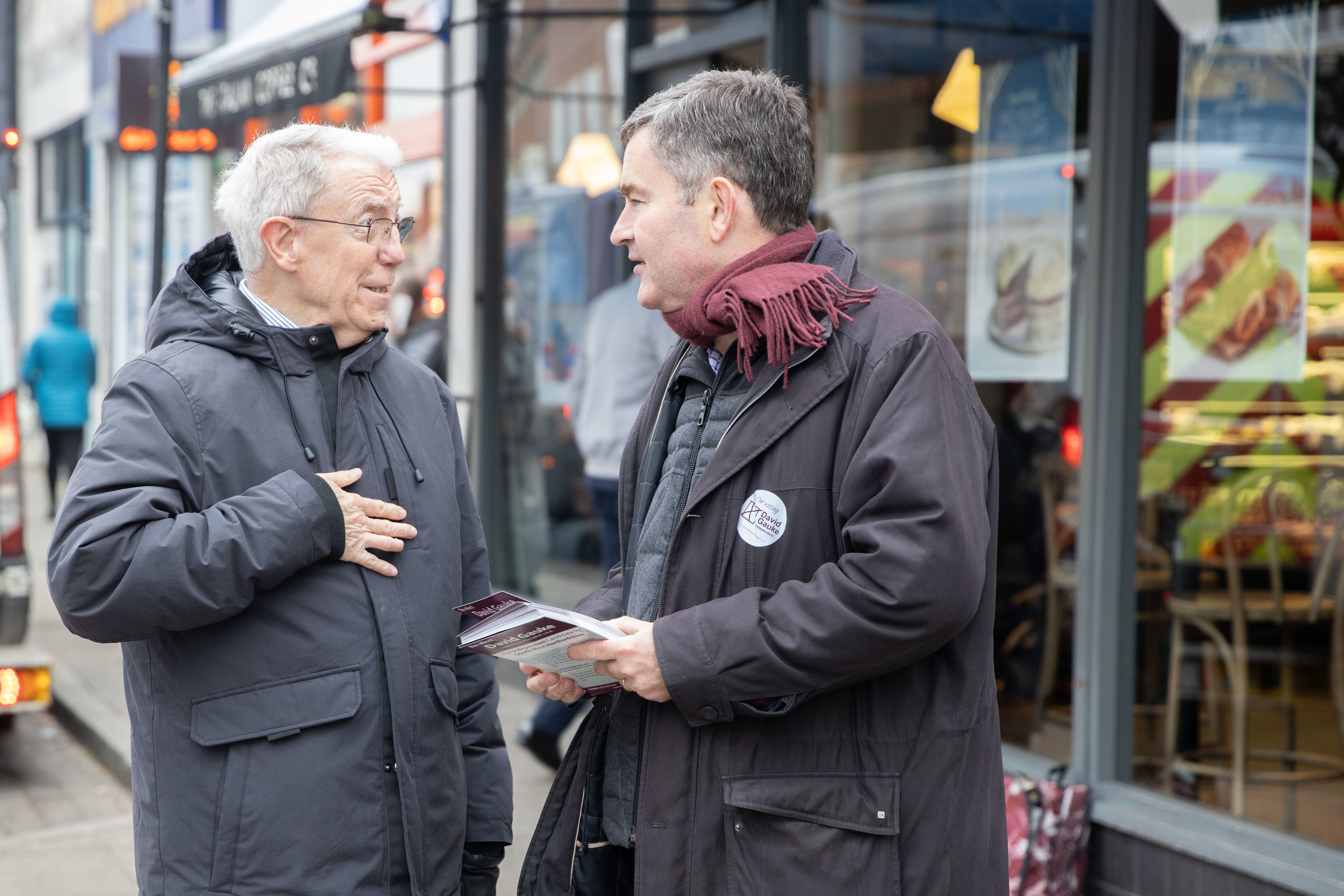
“One of the reasons why this general election campaign across the country feels so flat is because no one can summon up any enthusiasm for any of the parties,” he says.
“People really don’t want Jeremy Corbyn, and they do fear the consequences of a Corbyn government,” he continues. “Quite rightly, in my view. But the idea that there is a Boris mania going on — I don’t think anyone particularly thinks that.”
The Tories will get likely get back into government with an increased majority, but Gauke believes that Johnson and his allies may have laid the seeds of the party’s future destruction in taking such an aggressive, zero-sum approach to winning this election. Johnson will, he believes, fail to deliver his promise to “Get Brexit Done” and next year will be just as “fraught and polarising and difficult as the year we’ve just had”.
The Conservatives, with a new crop of hard-line Eurosceptics in parliament, will move even more to the right to appease their new base and push for a no-deal Brexit that would catastrophically damage the economy. The Tories will be “redefined for a generation as the Brexit party”, alienating a huge swathe of voters and opening the door to a radical Labour government led by someone more popular than Jeremy Corbyn.
“I wouldn’t want the country to be faced with a choice in 2024 between a discredited Conservative party that has inflicted unnecessary destruction on our economy versus a semi-Marxist Labour party. People would be left with such a terrible choice. People should make a stand now and say, ‘We don’t have to go down either of those routes.’”
It makes him more determined to win next month.
Late in the afternoon, Gauke is in Tring, a picturesque market town in the north of the constituency, where a small band of volunteers has gathered to deliver leaflets. They each take a map and a stack of flyers and split up.
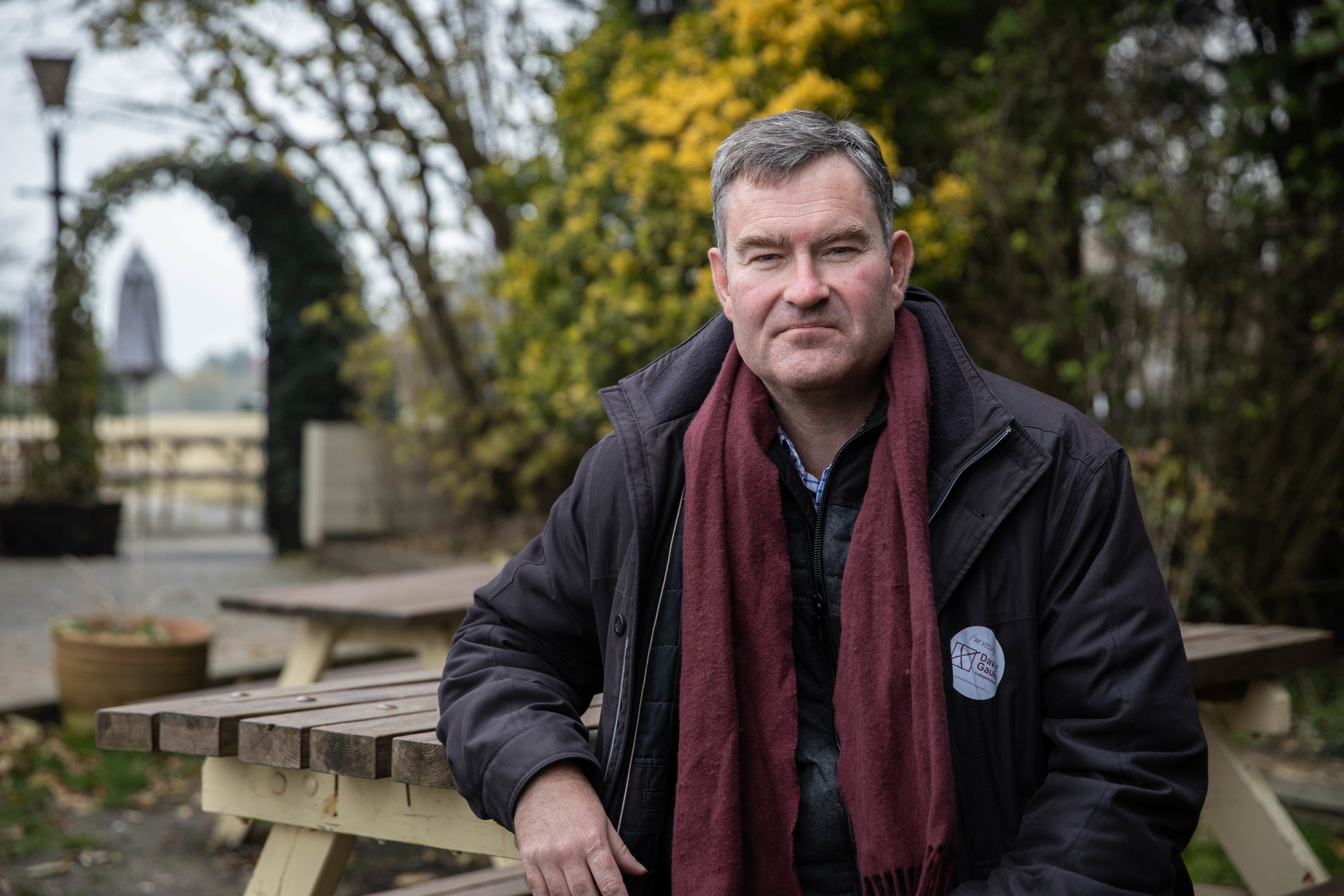
Gauke drives to the edge of town and parks on a quiet residential road. His map has four streets highlighted in blue: 141 homes that have yet to receive his campaign literature. He knots his scarf, grabs a handful of leaflets and gets out of the car.
On the four previous occasions that Gauke contested this seat, the elections were held at times of year when it was still light in the afternoon. Now, it’s cold, gusty and dark. Few of the houses have lights on. There’s almost nobody else around.
It’s a sombre scene, but Gauke seems invigorated. In two weeks, his political career could end with a humbling defeat by his former party. For now, though, he says he’s having fun.
“I’m busy and engaged and doing something I believe in,” he says.

